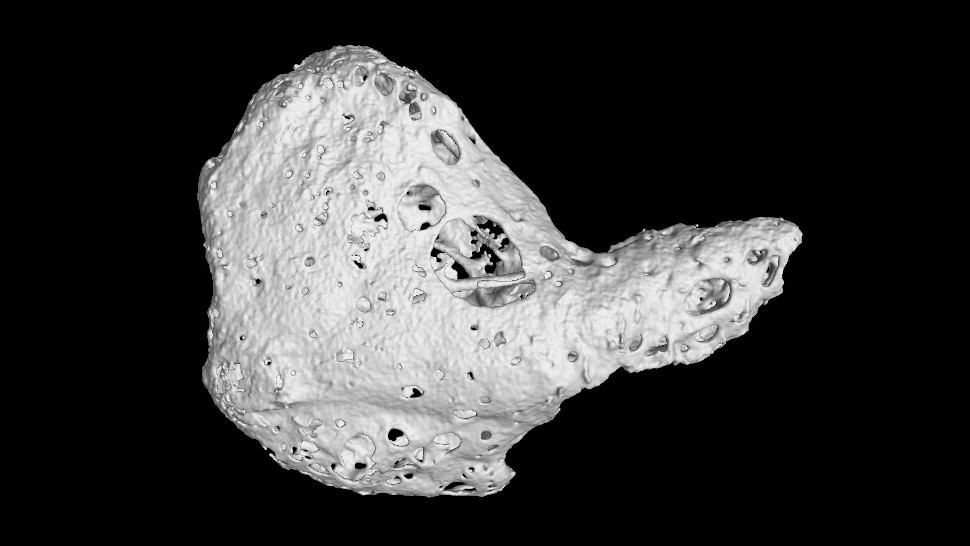English researchers have isolated the presence of a rare small bone in the hearts of some chimpanzees with a common heart condition. The implications of this discovery could also extend to humans.
Os cordis is a small bone found in the hearts of some animals. Buffaloes, sheep and camels sometimes have them. Otters and dogs too. The primates? We thought not, until this work published in Scientific Reports , suggesting that chimpanzees may also be affected.
In this study, researchers from the University of Nottingham (UK) analyzed the hearts of 16 chimpanzees using an advanced imaging technique called computed tomography micro-calculated. Some specimens suffered from idiopathic myocardial fibrosis (IMF), the most common type of heart disease in chimpanzees , and others not.
The scanners then highlighted the presence, in some specimens, of the tiny os cordis a few millimeters in diameter, lodged inside the right fibrous trigone which forms a link between the aortic, mitral and tricuspid valves.
Some chimpanzee hearts also exhibited "cartilago cordis", which is the formation of cartilage that has the potential to turn into bone.
We learn, more specifically, that three of the sixteen chimpanzees had an os cordis and associated cartilage, and that all four had been severely affected by IMF. The other 12 chimpanzees that had no os cordis or cartilaginous bones had lower levels of fibrosis, or no fibrosis at all.
Based on this observation, the researchers therefore made a link between having an os cordis and more severe fibrosis . Note that while older chimpanzees were more likely to have more severe IMF, younger specimens, both male and female, could also be affected.

Given the relatively small sample size, it is still too early to draw conclusions. Also, it should be noted that not all IMF-affected chimpanzees had bones/cartilago cordis.
Nevertheless, this startling discovery could ultimately lead to better treatments for chimpanzees, a species in which cardiovascular disease is common, affecting more than three-quarters adult chimpanzees who died in captivity between 1990 and 2003.
In addition, this work could also concern us, given the close genetic relationship shared between our two species. To date, this strange "os cordis" has never been detected in humans. To isolate him suddenly would therefore, again, be a real surprise. However, given our propensity to develop cardiovascular disease, the hypothesis should at least be considered.
Source